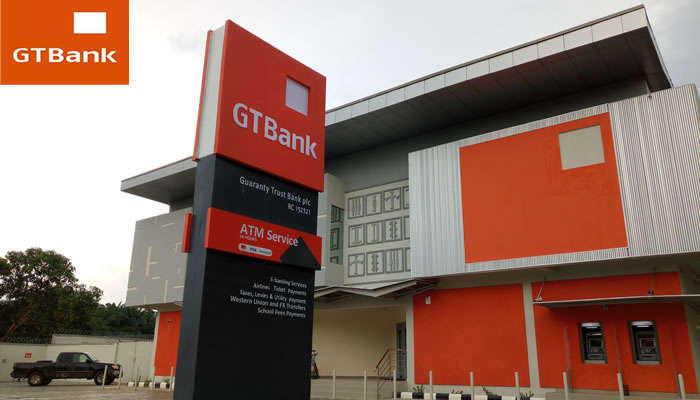Guaranty Trust Bank (GTBank) has officially started using a new billing system for its Unstructured Supplementary Service Data (USSD) banking transactions. Starting today, Wednesday, June 18, 2025, the N6.98 USSD transaction fee will no longer be deducted from customers’ bank accounts but from their airtime balance.
The bank made this known in a text message sent to its customers, which read: “Dear Customer, please be informed that effective 18 June 2025, the N6.98 USSD fee will be deducted from your airtime balance, no longer from your bank account. Thank you.”
With this move, GTBank has joined several other Nigerian banks that have implemented this new billing model, which is part of a larger industry-wide directive from the Nigerian Communications Commission (NCC). The change is also supported by the Central Bank of Nigeria (CBN).
This new billing arrangement is aimed at resolving long-standing disagreements between telecom operators and Nigerian banks over the payment of USSD service charges. For years, telecom operators have complained that banks were deducting USSD charges from customers’ bank accounts but failing to pay the telecom firms their share for providing the USSD infrastructure.
The issue had grown over the years, and by 2024, telecom operators were reportedly owed around ₦250 billion by Nigerian banks. Telcos accused the banks of profiting from the USSD service while refusing or delaying payment for the use of telecom infrastructure that made the service possible.
In an attempt to end the crisis, the NCC decided to introduce what is called the “End-User Billing” model. This means that the responsibility of paying the N6.98 USSD fee now lies directly with the bank customer, using airtime credit on their mobile phones, instead of the banks acting as middlemen.
Under this new system, whenever a customer starts a USSD session — for example, when checking an account balance or transferring money — a prompt will appear asking the customer to confirm that the N6.98 charge will be deducted from their airtime. If the customer agrees and has enough airtime, the charge will go through and the service will be provided.
This way, telecom companies can now receive payments directly from customers, which ensures quicker settlement and removes the previous bottleneck caused by the banks. However, customers who do not have sufficient airtime balance may not be able to carry out USSD transactions until they recharge their phone lines.
The shift to the airtime deduction model is also expected to increase transparency, as customers now see the USSD charges reflected immediately from their phone credit. This eliminates the confusion many customers experienced in the past when the charge was deducted from their bank accounts days or even weeks after the transaction.
The NCC and CBN have been working together to ensure that all commercial banks in Nigeria comply with this new rule. Banks are also expected to settle any previous debts owed to telecom operators before fully switching to the airtime-based billing model.
Before this latest development, several banks had already begun informing their customers about the change. With GTBank now fully on board, it is expected that more banks will follow the directive to avoid regulatory sanctions.
USSD services remain a popular method of banking in Nigeria, especially among customers who use feature phones or do not have access to the internet. With this change, both banks and telecoms hope to sustain the service in a way that benefits all parties.
